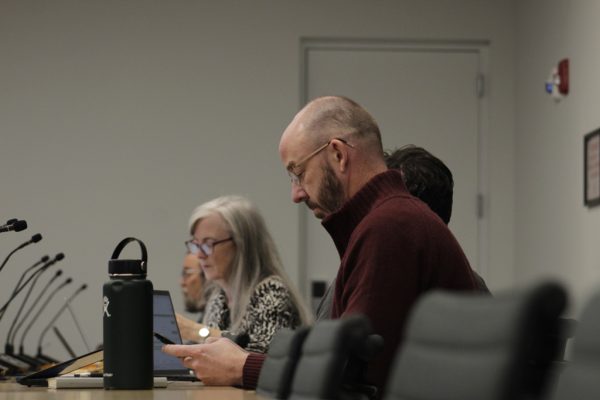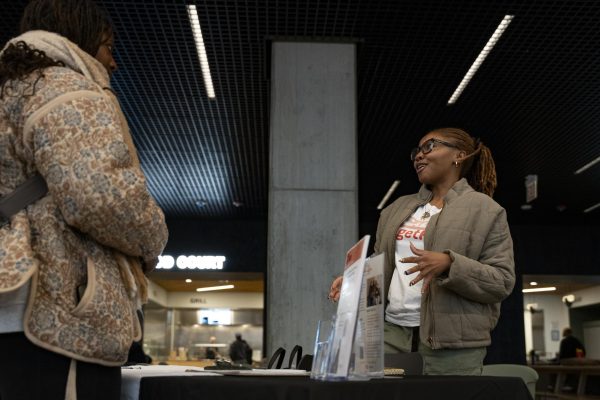Opinion divided on prioritization
September 12, 2011
Faculty members are buzzing about the prioritization process recently initiated by Columbia and aided by Academic Strategy Partners, a consulting group.
The Academic Strategy Partners’ “Report of a Consultative Visit” from April 2011 describes the process as one that will “enable the college to highlight its strongest programs” and reallocate resources from other programs.
Bruce Sheridan, professor and chair of the Film and Video Department, insists the process is nothing new.
“Prioritization is being done all of the time,” Sheridan said. “What’s happening this time is the president of the college decided that it needed to happen with external support… across the whole college.”
Two teams, composed of faculty and staff, will be asked to make decisions about academic and non-academic programs, Sheridan said.
Initially, there wasn’t faculty involvement in the selection of the teams, according to Sheridan. However, faculty members spoke against the issue, and a Faculty Selection Group was formed, he said. Sheridan is part of the selection group.
The faculty and staff members on the teams will “operate as ‘trustees’ of the entire institution, and not as mere ‘delegates’ from a particular area,” according to the April 2011 report.
“I hope prioritization teams have the ability to stand back and see what’s best for the [entire] school,” said Dominic Pacyga, professor and Liaison to the Board of Trustees.
Sheridan is optimistic about the outcome because the two committees will be making the decisions instead of the external facilitators.
“Change is a thing people naturally fear ahead of it happening,” Sheridan said. “But often it works out to their advantage. They just couldn’t see how it would.”
He said he was concerned the process would move too swiftly and important details would be lost. When the process was first presented to the college in Spring 2011, it was initially going to be quicker, he said. However, faculty urged the administration to allow a gender deliberation.
Sheridan envisions a careful and cautious process. “By and large, my thing is, is there clear evidence that supports [the change] and can everybody understand why we’re doing it?” he said. “I don’t want to see the prioritization process used to do something without clear evidence.”
Deborah Holdstein, dean of the School of Liberal Arts and Sciences and part of the Faculty Selection Committee, recommends faculty keep an open mind about the process and “not go in with any pre-ordained notions.
Along with Sheridan, Holdstein points out that the process should not overlook the rudimentary details of learning.
“There are some things in learning that are timeless, that transcend changes in the digital world, that transcend what might be the latest fashion in education,” Holdstein said. “We need to be mindful of those things, too.”
Though most are positive about the process, leadership in the faculty has expressed more in-depth concerns.
Tom Nawrocki, president of the Columbia College Faculty Organization, associate professor in the English department and part of the faculty selection group, said he asked President Warrick L. Carter at the Faculty Retreat on Aug. 23–24 whether full-time faculty could lose their positions.
“What I was hoping to hear from Dr. Carter was that he thought full-time faculty would not lose their positions,” Nawrocki said. “I really appreciated his thoughtful and lengthy, candid response to my question, and essentially he said while every effort would be made to make sure faculty wouldn’t lose their jobs, there’s no guarantee at this point.”
Faculty is also concerned about the process affecting tenure.
The “Report of a Consultative Visit” states in the “ground rules” the “likelihood—or not— of changes affecting tenure.”
“As CCFO president, the CCFO executive committee is very concerned over matters involving tenure and holds the position that tenured faculty cannot be terminated without showing extreme financial cause,” Nawrocki said.
Sheridan says there is a nation-wide debate over changing tenure, and books are being published about it. He believes tenure will change at a national level within the next few years.
“I believe that everything, including tenure, will be analyzed in the prioritization process,” Sheridan said.
Some faculty members may be resistant to change. Some may be welcoming to it. Regardless, the chances of a change coming to Columbia are greater now than before.
“We don’t want change for the sake of change,” Holdstein said. “If there is change, we want constructive change.”






